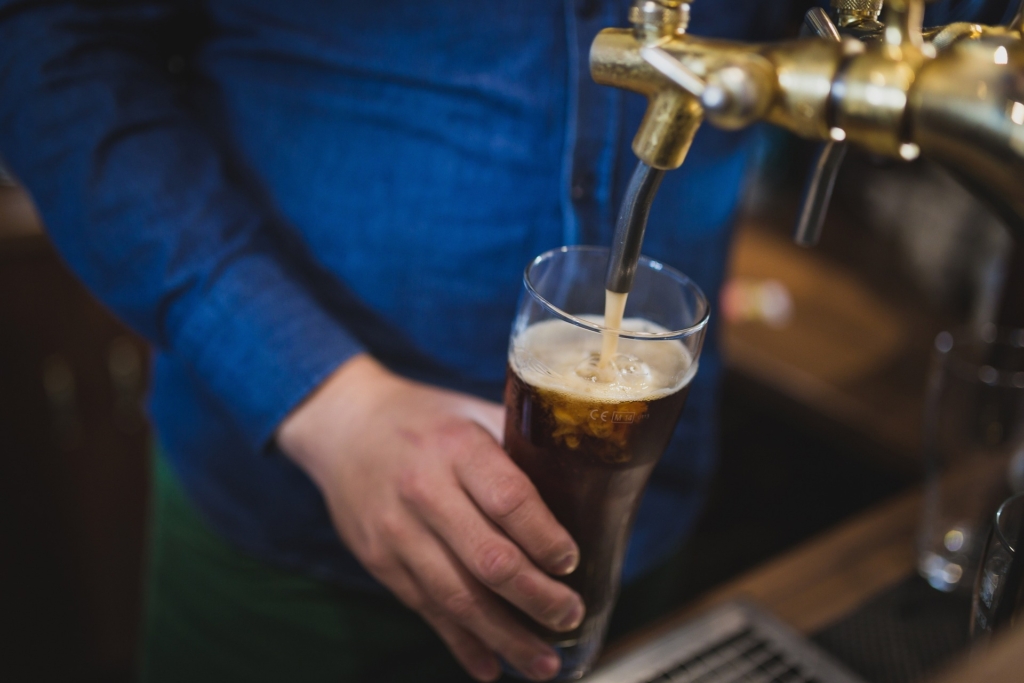Bartending is an art that goes beyond mixing cocktails; it involves understanding the nuances of serving alcohol responsibly and ensuring the safety and well-being of patrons. Obtaining a bartender license is legal for those looking to work behind the bar in many places. This comprehensive guide explores a bartender license, why it’s essential, and how to obtain one to kickstart your bartending career.
Understanding Bartender Licensing
A bartender license, also known as a bartending permit or alcohol server certification, is an official document that certifies an individual’s competency to serve alcohol responsibly and legally. Local or state authorities typically issue these licenses, and may come with specific requirements, such as completing a training program or passing an exam. Bartender licenses ensure the safe and responsible sale and service of alcoholic beverages in various settings, including bars, restaurants, and other establishments. Opt for a Washington DC Alcohol Certification, for example, if you plan to work as a bartender in the District of Columbia. The licensing process may vary from region to region, so it’s crucial to understand the specific requirements in your area.
The Importance of a Bartender License
Obtaining a bartender license is more than just a legal requirement; it’s a crucial component of responsible bartending for several reasons:
- Legal Compliance: Bartender licenses are mandated by law in many regions. Serving alcohol without the necessary license can result in fines, legal troubles, and even the closure of the establishment.
- Responsible Service: A bartender license typically involves training in reliable alcohol service. This includes recognizing signs of intoxication, understanding the legal drinking age, and knowing when to refuse service.
- Liability Protection: A bartender license can protect you and your employer from legal liability if an alcohol-related incident occurs on the premises. It demonstrates that you’ve received proper training.
- Job Opportunities: Many food and beverage industry employers require their bartenders to have a valid license. Obtaining one can open doors to a broader range of job opportunities.
- Customer Safety: Responsible bartending helps ensure the safety and well-being of customers. A trained bartender is more likely to prevent overconsumption, underage drinking, and other alcohol-related issues.
How to Get a Bartender License
The process of obtaining a bartender license can vary depending on your location. To give you a general idea of what to expect, here are the steps you might follow to secure your bartender license:
- Check Local Regulations:
Start by researching the specific requirements for bartender licensing in your area. Regulations can vary significantly from one place to another, so it’s crucial to understand the rules and procedures that apply to your jurisdiction. For instance, in the District of Columbia, you can visit the Alcoholic Beverage Regulation Administration (ABRA) website for detailed information about the licensing process, including the required training programs and application procedures.
- Choose a Certification Program:
Many areas require aspiring bartenders to complete a certified alcohol server training program. These programs are designed to educate you on responsible alcohol service, including checking IDs, recognizing signs of intoxication, and understanding local alcohol laws. You can often find these programs offered by accredited providers or online.
- Enroll in the Program:
Enroll and complete the required training once you’ve chosen a certification program. These programs typically cover alcohol laws, customer service, and safety procedures. The duration and cost of these programs can vary, so choose one that aligns with your needs and schedule.
- Pass the Exam:
After completing the training, you may need to pass an exam to demonstrate your understanding of the material. This could be a written test or an online assessment. Completing the exam is often a prerequisite for receiving your bartender license.
- Submit an Application:
With your certification and exam results, you’ll likely need to apply for a bartender license from your local or state alcohol control board. This application may include a fee, so be prepared to cover the cost. Submitting a well-documented application and promptly paying the required fee is crucial for a smooth and successful application process, ensuring that you can legally and responsibly serve alcohol in your area.
- Undergo a Background Check:
Depending on your location, you may need a background check as part of the licensing process. This check ensures you have no prior alcohol-related violations or criminal convictions. A clean background check is often essential to demonstrate your suitability for a bartender license and your commitment to responsible alcohol service.
- Receive Your License:
Once your application is approved, you’ll be issued a bartender license. This license is typically valid for a specified period, after which you may need to renew it by completing additional training or exams. Your bartender license is a professional credential and a testament to your commitment to safety and responsible alcohol service, contributing to a more secure and enjoyable environment for patrons.
Types of Bartender Licenses
The specific type of bartender license you’ll need can vary depending on your intended role and the establishment where you’ll be working. Here are some common types of bartender licenses you might encounter:
- On-Premises License: This license allows you to serve alcoholic beverages in a bar, restaurant, or similar establishment. It’s the most common type of bartender license and covers serving alcohol to customers for on-site consumption.
- Off-Premises License: This license is often required for individuals working in stores or businesses that sell alcohol for off-site consumption, such as liquor stores.
- Catering License: Catering licenses are needed when serving alcohol at private events, weddings, or catering functions. They come with specific regulations for temporary alcohol service.
- Gaming License: If you plan to work in a casino or gaming establishment where alcohol is served, a gaming license may be necessary. These licenses often have additional requirements due to the unique nature of the environment.
Bartender License Renewal
Bartender licenses are not typically permanent and often require renewal to remain valid. The renewal process can involve additional training, exams, or fees. The renewal frequency varies by location, but it’s essential to stay current with the renewal requirements to ensure you continue to meet legal obligations.

Obtaining a bartender license is a fundamental step toward a successful career in the hospitality and beverage industry. It not only keeps you in compliance with the law but also equips you with the knowledge and skills to serve alcohol responsibly, protect customers, and enhance the overall experience at your establishment. Whether starting your journey as a bartender or seeking to advance in your career, a bartender license is an essential credential that sets you on the path to becoming a skilled and responsible bartender.



